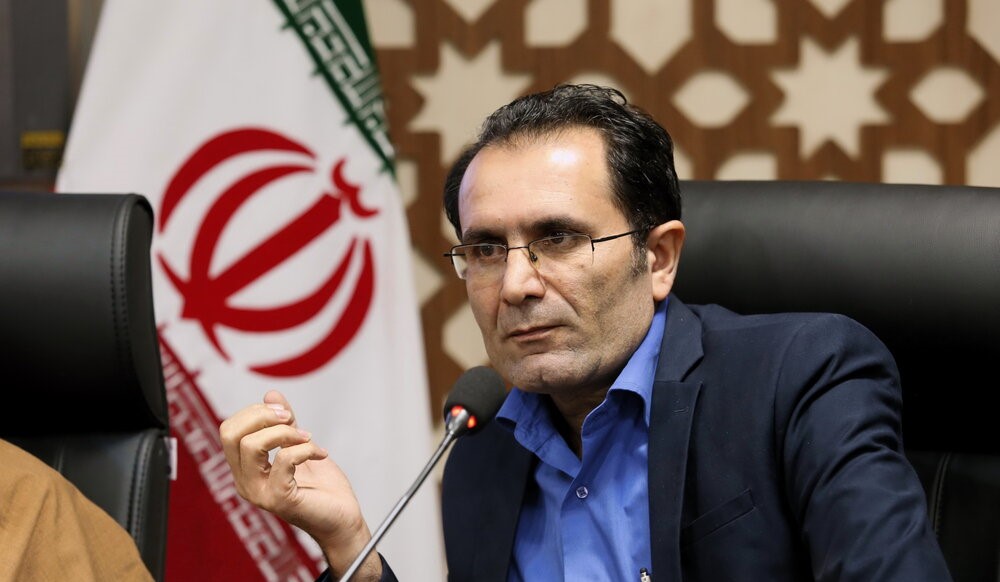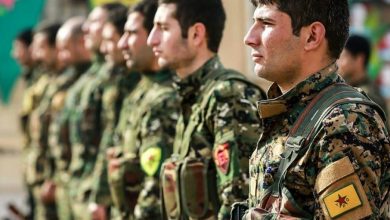Despite progress in drafting resolutions and binding documents, the absence of a global agreement on the definition of terrorism remains a primary impediment to establishing a comprehensive legal regime for combating this phenomenon
Despite progress in drafting resolutions and binding documents, the absence of a global agreement on the definition of terrorism remains a primary impediment to establishing a comprehensive legal regime for combating this phenomenon.
As proponents of peace and anti-war movements worldwide express concern over the spread of violence and terrorism across the human ecosystem, the need for legal strategies to effectively counter this sinister phenomenon has become increasingly urgent.
One of the significant efforts of the international community in this regard is the drafting of the “Comprehensive Convention on Combating Terrorism”; a document that, after more than two decades, remains entangled in the complexities of international political and legal challenges.
On this occasion, the international conference “The Draft Comprehensive Convention on Combating Terrorism; 25 Years Later” will be held this afternoon (Tuesday, April 15th) at the Faculty of Law and Political Sciences of Allameh Tabataba’i University, with the participation of prominent international law professors, researchers, students, representatives of non-governmental human rights organizations, and international law scholars from various countries. This conference is not only an opportunity to revisit the drafting process of the convention but also a platform to raise the concerns of countries victimized by terrorism, including Iran, regarding the selective and discriminatory approach of international institutions.
Prior to the commencement of this conference, the Iranian Kurdistan Human Rights Watch conducted an exclusive interview with the scientific secretary of the conference, Dr. Nezhandi-Manesh, to gain insight into the objectives, substantive themes, and key messages of this scholarly event.
What follows is the full text of this illuminating interview.
Question: What is the objective of holding the conference “The Draft Comprehensive Convention on Combating Terrorism: 25 Years Later and its Impact on Countering this phenomenon”?
Nezhandi-Manesh: The main objective of this conference is to examine the trends that have unfolded over the past quarter-century in the process of drafting the Comprehensive Convention on Combating Terrorism; a convention that, despite extensive efforts, has not yet reached its final conclusion. This conference provides a platform for scholarly and legal dialogue among experts, officials, and representatives of international organizations to assess the challenges, obstacles, and strategies for expediting the adoption of this document, as well as its impact on the international legal system for combating terrorism and its definition. Furthermore, it demonstrates our country’s determination and desire to combat terrorism, particularly at the international level.
At the same time, it enables academics to define their scholarly and professional role in countering terrorism. It is evident that every government, to succeed in its macro and micro policies, requires academic cooperation and capacities. This conference is a prime example of the participation of academics in a significant and overarching national issue.
Question: What is the approach of international organizations in legally confronting this phenomenon at the international community level?
Nezhandi-Manesh: International organizations, particularly the United Nations, have focused on establishing binding legal frameworks, drafting Security Council resolutions (including Resolutions 1373 and 2396), and supporting the legal and judicial capacity building of countries. However, the lack of consensus on a unified definition of terrorism is a fundamental challenge in the path to a coordinated legal response to this phenomenon. The speech of the United Nations Special Rapporteur on the promotion and protection of human rights and fundamental freedoms while countering terrorism at this conference indicates the approach of the United Nations and its willingness to combat terrorism at the international level.
Question: How do you assess the level of cooperation between international organizations and the Islamic Republic of Iran as one of the primary victims of terrorism?
Nezhandi-Manesh: Iran has been a serious victim of terrorism in the past four decades and has repeatedly called for an effective response from the international community to terrorist groups, especially those supported by certain states. However, the cooperation of international organizations with Iran in this regard has consistently been below expectations due to political and discriminatory reasons. Strengthening this cooperation could be an effective step towards combating terrorism at the regional and global levels. In particular, the European Union and the United Nations are expected to have the utmost cooperation with our country without selective approaches in countering terrorism and supporting victims of terrorism. The Association for the Defense of Victims of Terrorism, which is one of the most active Iranian non-governmental organizations, has had the most referrals and requests from international organizations, especially the United Nations and the European Union. It is expected that with the participation and cooperation of the academic community and civil society, international organizations will also have a more effective response in this area.
Question: As an international law expert, how significant and to what extent are international documents effective in countering the phenomenon of terrorism?
Nezhandi-Manesh: International documents, especially the sectoral counter-terrorism conventions, play a crucial role in establishing uniform procedures, exchanging information, extraditing criminals, and blocking the financial resources of terrorist groups. However, their actual impact depends on the level of commitment and political will of states in implementing these documents. The absence of effective oversight mechanisms and the application of double standards are major obstacles to maximizing the benefits of these documents. Furthermore, the greater the participation and demands of public opinion, the higher the efficiency of international documents in combating terrorism will undoubtedly be. As long as academics do not become demanding and are not the driving force of public opinion, especially civil institutions, even the best documents will remain as paper archived in archives.
Question: In your opinion, what impact will the final adoption of the Comprehensive Convention on Combating Terrorism have on countering the phenomenon of terrorism?
Nezhandi-Manesh: The final adoption of this convention could be a historic step in the development of a global and coherent legal framework for combating terrorism. If it includes a precise, comprehensive, and consensual definition of terrorism and strong enforcement mechanisms, this convention could become an effective tool for international convergence and the promotion of multilateral cooperation.
Question: What is your message as the executive secretary of this conference to international institutions regarding the fight against this phenomenon?
Nezhandi-Manesh: Our message to international institutions is that the fight against terrorism and its definition should not be a tool for selective policies and geopolitical interests. Terrorism in all its forms, in any place, and with any motivation is condemned, and it can only be eradicated through sincere cooperation, the avoidance of double standards, and a commitment to justice. The global community needs a collective will that transcends short-term interests. At the same time, countering terrorism is a multifaceted issue, just as terrorism itself is a multifaceted phenomenon. Solely military or even solely legal approaches to countering terrorism will never lead to a solution. Combating terrorism requires the adoption of legal, cultural, political, economic, and ultimately military approaches.






